Here's what the Supreme Court could rule on the legality of Biden's student debt forgiveness plan
The fate of President Biden’s $400 billion student debt relief program is now in the hands of the Supreme Court, whose decision as to whether Biden overstepped his executive power could significantly impact the lives of over 40 million U.S. student loan borrowers.
The nine justices heard two cases on Tuesday that challenge the debt relief. Biden v. Nebraska was brought by six Republican-led states — Arkansas, Iowa, Kansas, Missouri, Nebraska and South Carolina — that argue Biden’s plan creates a direct injury because it would result in lost tax revenue for each state. But the high court’s liberal justices indicated skepticism about whether states had “standing” to file a lawsuit against the federal government in the first place. A lower court found that Missouri, one of the six states, had the standing to bring the suit on behalf of the Missouri Higher Education Loan Authority (MOHELA), which services federal student loans, because it would lose revenue if Biden’s plan went forward.
Justice Elena Kagan pressed Nebraska Solicitor General James Campbell on the connection between MOHELA and the state of Missouri. “Usually we don’t allow one person to step into another’s shoes and say, ‘I think that that person suffered a harm,’ even if the harm is very great,” she said Tuesday.
The second case, Department of Education v. Brown, was filed by the Job Creators Network Foundation on behalf of two Texas student loan borrowers who don’t qualify for student debt forgiveness under Biden’s plan.
One of the core issues in both cases is whether Biden can use a 2003 law in order to create the debt forgiveness program, and whether a national emergency like the COVID-19 pandemic is sufficient grounds for a president to issue a blanket cancellation of federal student loan debt.
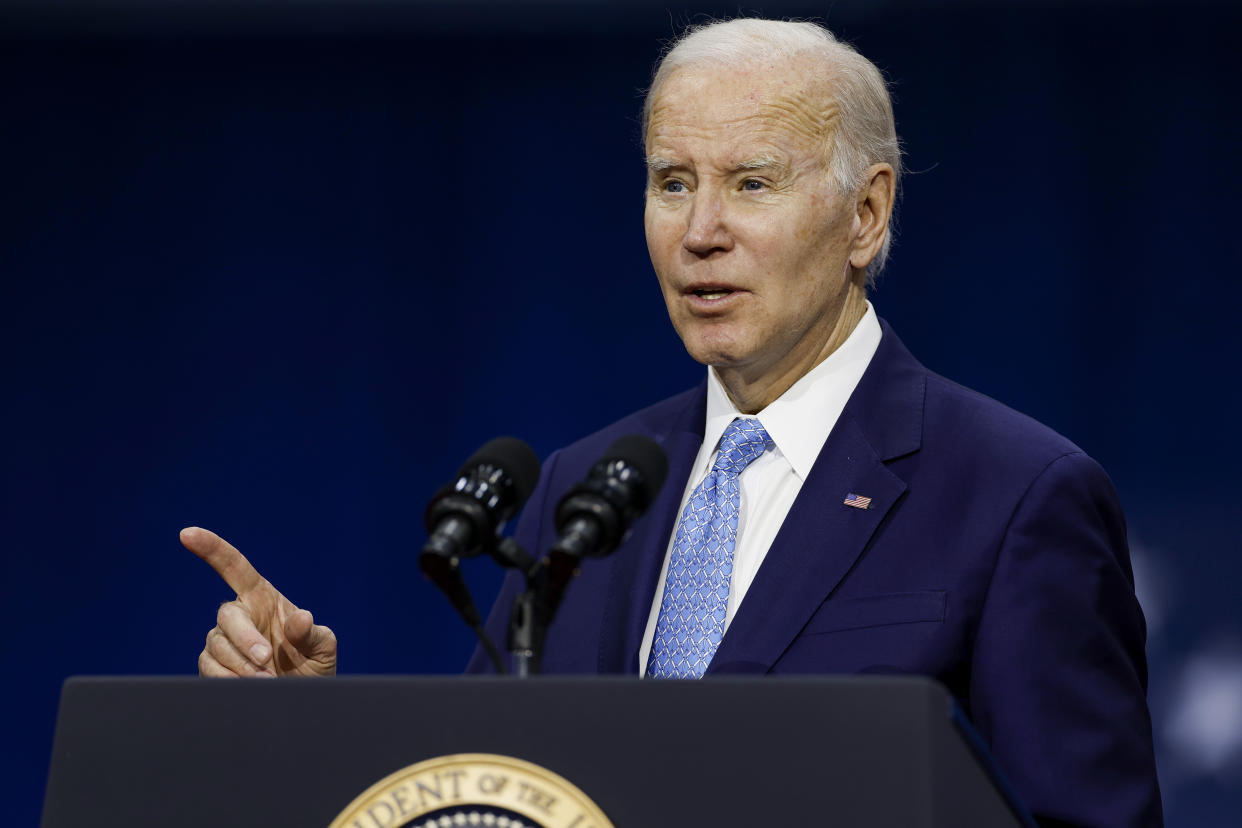
On Tuesday, conservative justices seemed to express doubt that the law allows it. “We take very seriously the idea of separation of powers and that power should be divided to prevent its abuse,” Chief Justice John Roberts said.
The repayment of federal student loans has been paused since March 2020, during the start of the coronavirus pandemic, and Biden extended the pause for a sixth time, through June 2023.
In August, Biden went even further, authorizing the Department of Education to provide up to $20,000 in debt cancellation to students who qualified for debt forgiveness.
“This case in some ways is about what the role of courts is in our system to decide what the president can do and what the president can’t do without Congress,” Chris Walker, a law professor at the University of Michigan, told Yahoo News. “There’s some bigger questions in this case that will tell us a little bit more about the role that the court sees itself playing in the decades to come.”
Walker spoke to Yahoo News about some of the key arguments and questions that came from Tuesday’s Supreme Court hearing and what the potential outcomes could be. Some responses have been edited for length and clarity.
What are some of the main issues at play now that the Supreme Court has heard both cases?
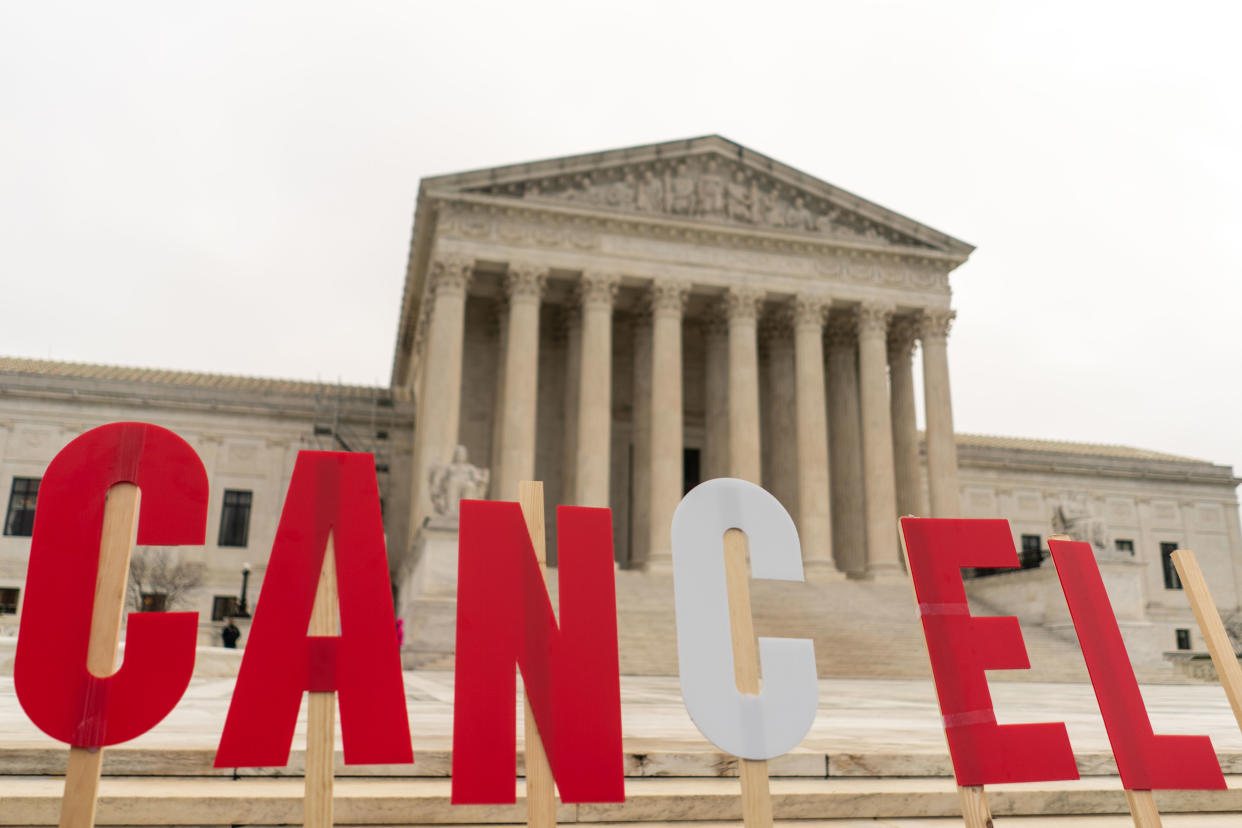
“I think there are two really big questions after the oral arguments,” Walker said.
“Do we have a plaintiff that can even bring a lawsuit? In other words, is there a plaintiff that has standing? [‘Standing’ refers to the direct and concrete injury a plaintiff faces that gives them reason to sue.] I don’t think we got any great answers on that today about where the justices are at. Obviously the three more progressive justices [Kagan, Ketanji Brown Jackson and Sonia Sotomayor] have no interest in that.
“The second big question is on the legal merits of Biden’s student loan forgiveness program. The ‘major questions doctrine’ is this idea that the court’s going to require a clear authorization from Congress when an agency wants to regulate an issue of significant economic, political or moral consequence. I think it was pretty clear there are five, if not six, votes to apply the major questions doctrine.”
Walker explained, “When presidents arrive in office they want to implement their ambitious policy agenda and, at least in recent years, find a Congress that’s unwilling to do that. So they now say, ‘Can we find any existing statutes the Congress has passed that could potentially be used to advance a policy agenda?’ So the court has been struggling with: ‘Do we let a president use a really old statute that was tailored for something else to address a new problem? Or do we let a president use a really narrow part of a statute we don’t think Congress would’ve ever intended to be used this way to do something different?’
“The Biden administration is using a statute [the HEROES Act of 2003] that was designed to provide relief from student loan requirements for military or other national emergencies. And it’s being used to kind of provide pretty blanket relief for tens of millions of individuals. So I think the court is looking at it saying, ‘We don’t think the Congress that enacted this statute would’ve thought this is what you could do with it, that there had to be a much more narrow target of relief.’
“I thought the solicitor general of the United States, Elizabeth Prelogar, did a fantastic job fighting one of the main parts, which is: ‘Are we just using the crisis as an excuse?’ I thought she did a great job of explaining ‘No,’” Walker said. “What happened here is the Trump and Biden administrations were pausing payments on student loans during COVID, understandably, because of the economic impact, and this was a way to gradually restart the process.
“So let’s just see if the court believes that’s what’s really going on, or if this was kind of a campaign promise that was trying to be fulfilled in a different way. I think if you kind of listen to the questions from the conservative members of the court, they still seemed really skeptical of that argument.”
These cases are very similar. Is it possible the court could rule differently in each case, and how?
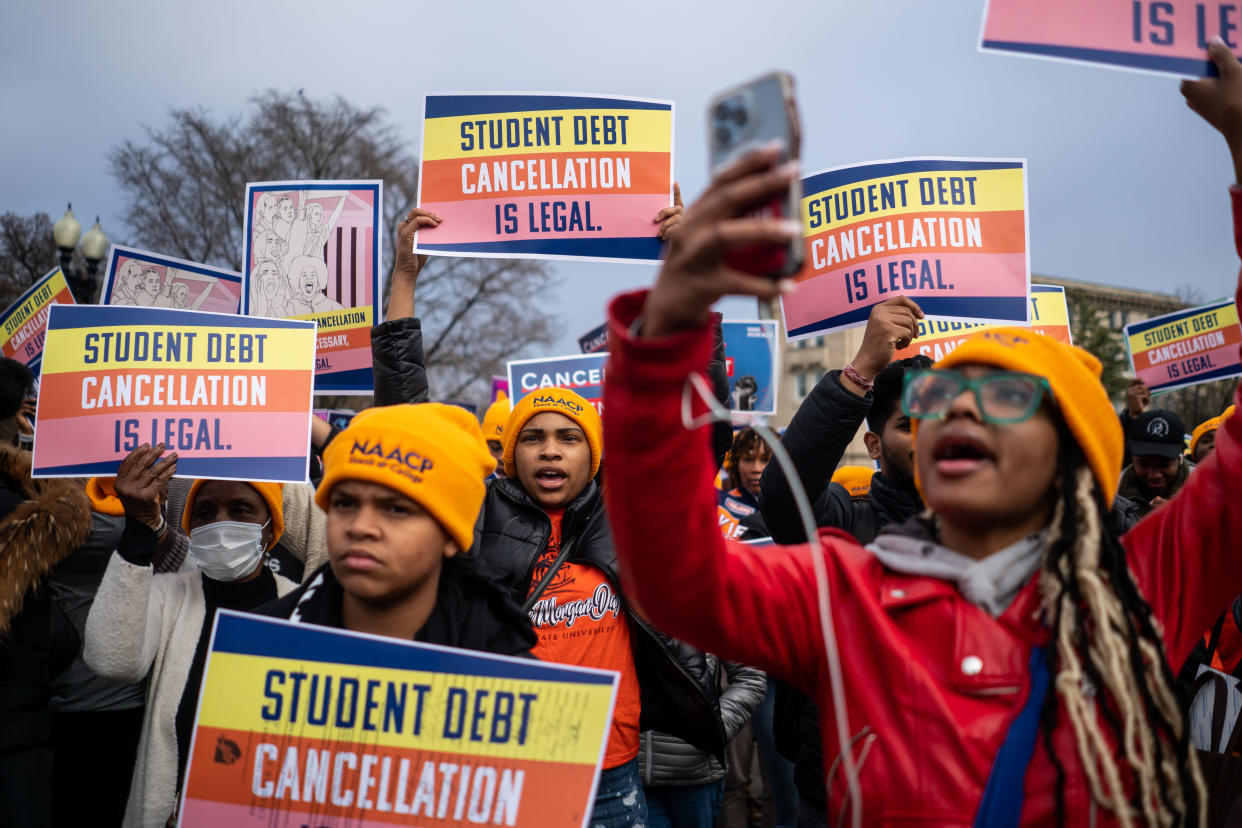
“Yes, for sure,” Walker said. “The standing arguments in the second case of the individuals that hold loans [Department of Education v. Brown] are really, really weak and there was no justice that seemed to have any appetite in that.
“So if the justices rule on the merits of Biden’s student loan forgiveness program, it will be in the first case [Biden v. Nebraska], and I don’t think they’ll say that the other plaintiffs have standing.”
If the Supreme Court finds that Nebraska has standing to sue the federal government, what would the wider implications of the ruling be?
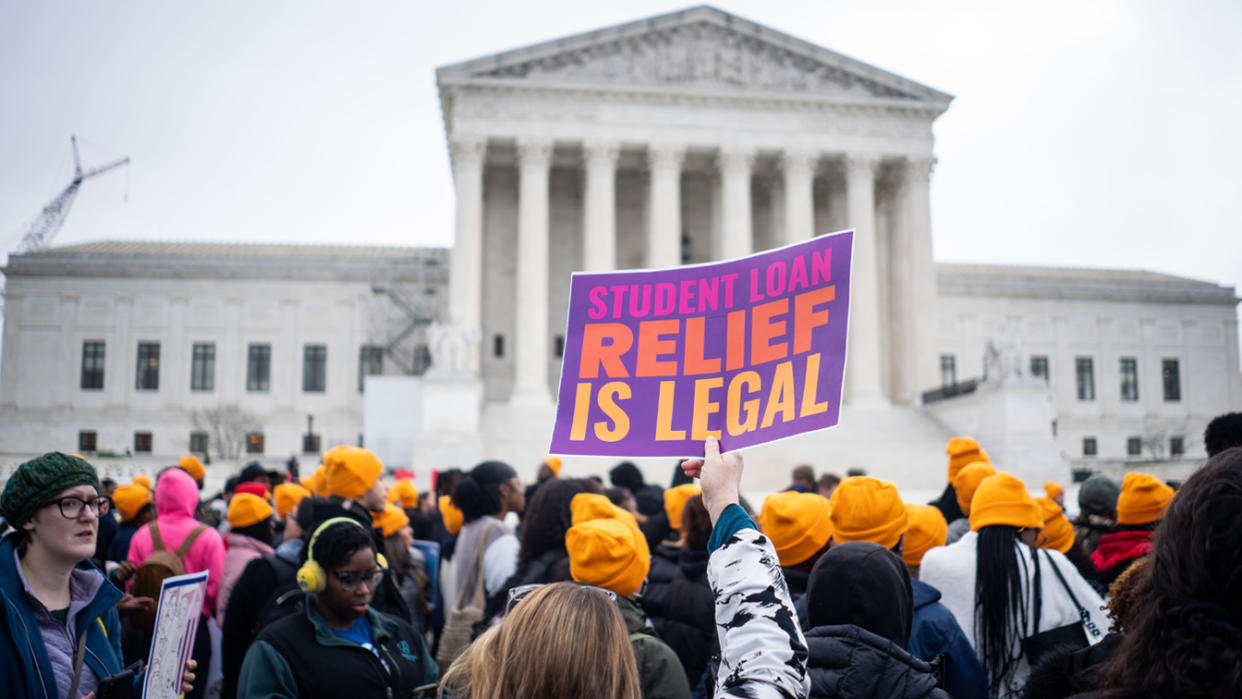
“This was argued before the court in Massachusetts v. EPA [Environmental Protection Agency], and it was the conservatives who were arguing that states don’t have the ability to have standing to force the EPA to regulate climate change. At the time it was the conservatives who were worried that it would open the courthouse doors for states to challenge everything,” Walker said.
“I do think if the court does say there’s standing here, you’ll probably see a pretty narrow ruling on standing that just says this is an exceptional case just like Massachusetts v. EPA, where a state only has standing in this particular instance to try to kind of keep the courthouse doors not too open for states to bring lawsuits.”
Walker added, “On the merits question, I think what will happen is the court will just send it back to the circuit court to consider whether to go forward. If the Biden administration loses in the Supreme Court and it goes back to the lower court, the lower court has to decide what the remedy is. Is it a remedy that applies nationwide that invalidates the program for everyone? Or are they going to have a much narrower remedy that just applies to the loan service providers that are in the lawsuit?”
If the Supreme Court rules in favor of the Biden administration, what could those rulings look like?
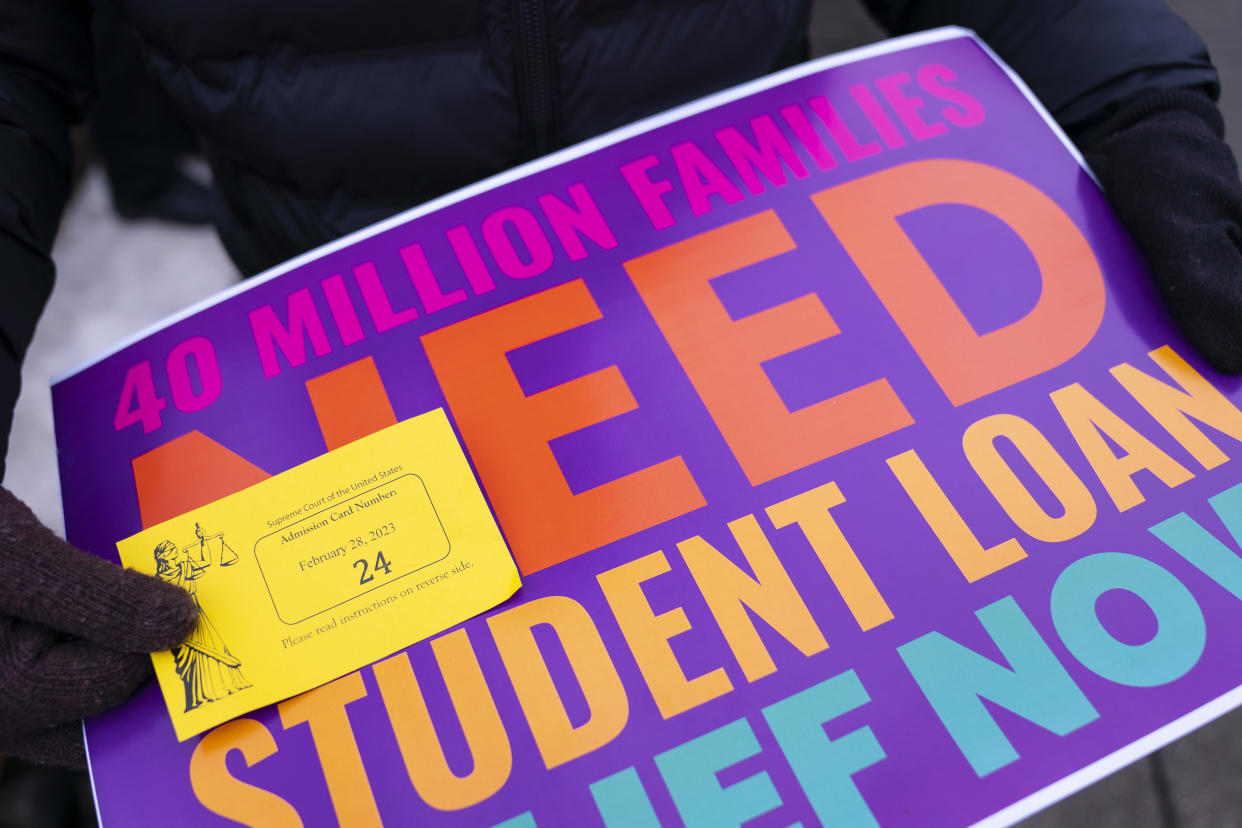
“You never know with the Supreme Court, but if I had to guess, they would rule on the standing grounds to say that neither the states nor the individual plaintiffs have standing,” Walker said. “That would be a very limited rule holding for the development of law. And that’s what I think the conventional view is right now, that you can’t sue to challenge a federal agency action in federal court unless you have a concrete injury, and it’s hard to kind of find a concrete injury here and I don’t think that’s going to do much. Of course it would allow a huge, massive $400 billion program to go forward.”
Since these cases were expedited, is it possible that a ruling could be expedited as well?
“I don’t think so. It’s possible, but I think it’s doubtful. These are really complicated cases and unless the court all agrees there isn’t standing — and even then there’s going to be at least some members of the court that would dissent on that. I think we’re going to have to wait till the end of the term to see the ruling,” Walker said.

